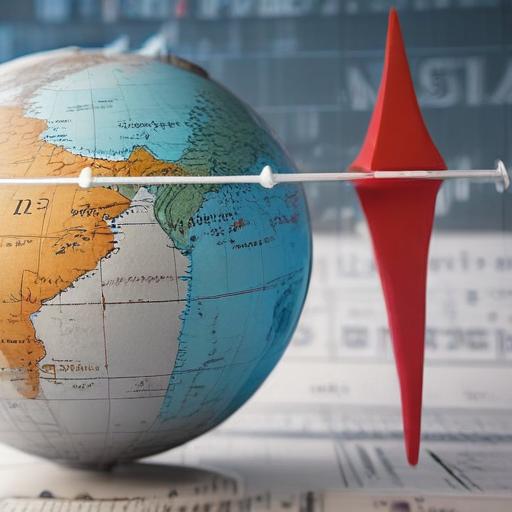US President Donald Trump’s recent announcement of a 25% tariff on goods imported from India could significantly impact the nation’s economic growth and export activities, according to experts. Alongside this tariff, Trump also mentioned unspecified penalties that will be enacted starting August 1, targeting India’s acquisitions of Russian oil and weapons amid the ongoing conflict in Ukraine.
Economist Aditi Nayar from Icra noted that this unexpected increase in tariffs and penalties could hinder India’s GDP growth, which has already been revised down from 6.5% to 6.2% for the current fiscal year. The impact of the new tariffs could potentially lead to a further GDP decline of 0.2%, as indicated by brokerage Nomura. As a response, Indian stock markets opened lower when trading commenced, reflecting investor concerns regarding the tariffs.
Despite prior negotiations aiming towards a trade deal between India and the US, this move is seen as a setback. The attempts by India to reduce tariffs on some products like Bourbon whiskey and motorcycles, in an effort to appease US officials, may not have been sufficient to prevent these tariffs from being imposed. The U.S. currently faces a substantial trade deficit of $45 billion with India, a point of contention for Trump.
Additionally, the implementation of these tariffs may divert export supply chains to competing countries in Asia, like Vietnam and China, which could offer more favorable tariff conditions. This could particularly affect critical sectors in India, such as textiles, pharmaceuticals, and automobiles, which have enjoyed strong bilateral trade with the US in the past.
Industry leaders expressed disappointment but remained hopeful for future negotiations. Harsha Vardhan Agarwal, president of the Federation of Indian Chambers of Commerce and Industry (FICCI), have voiced a desire for these tariffs to be a short-term issue rather than a long-term barrier, underscoring the importance of solidifying a permanent trade agreement.
In summary, while the implementation of tariffs poses immediate challenges for India’s trade relationships and economic growth, there remains optimism for resolving the situation through future negotiations. Cooperation may set the stage for a more balanced and prosperous trade relationship in the long term.
